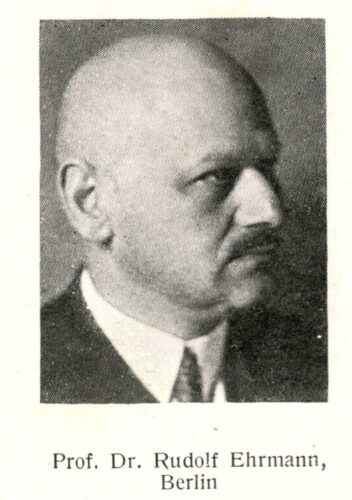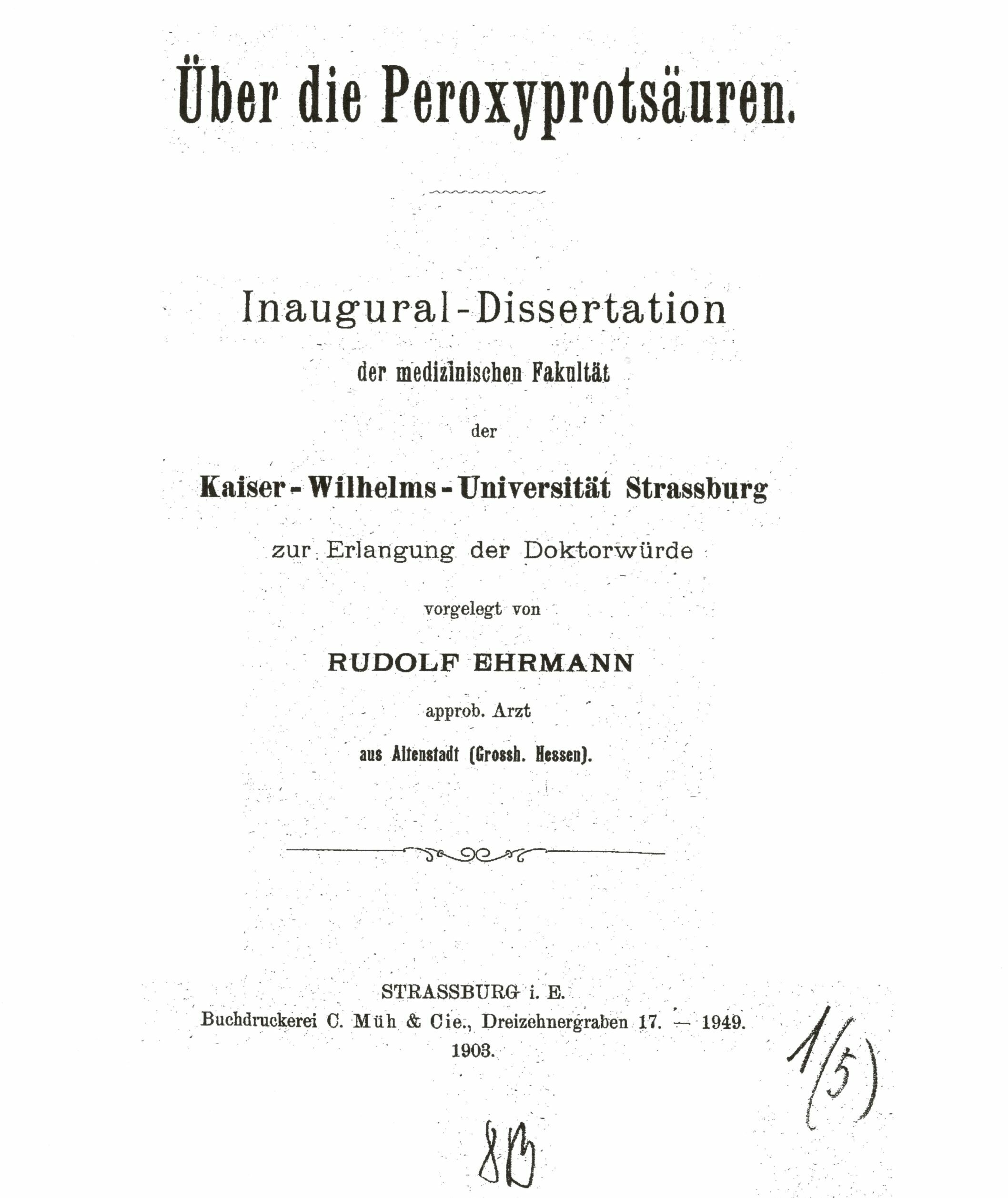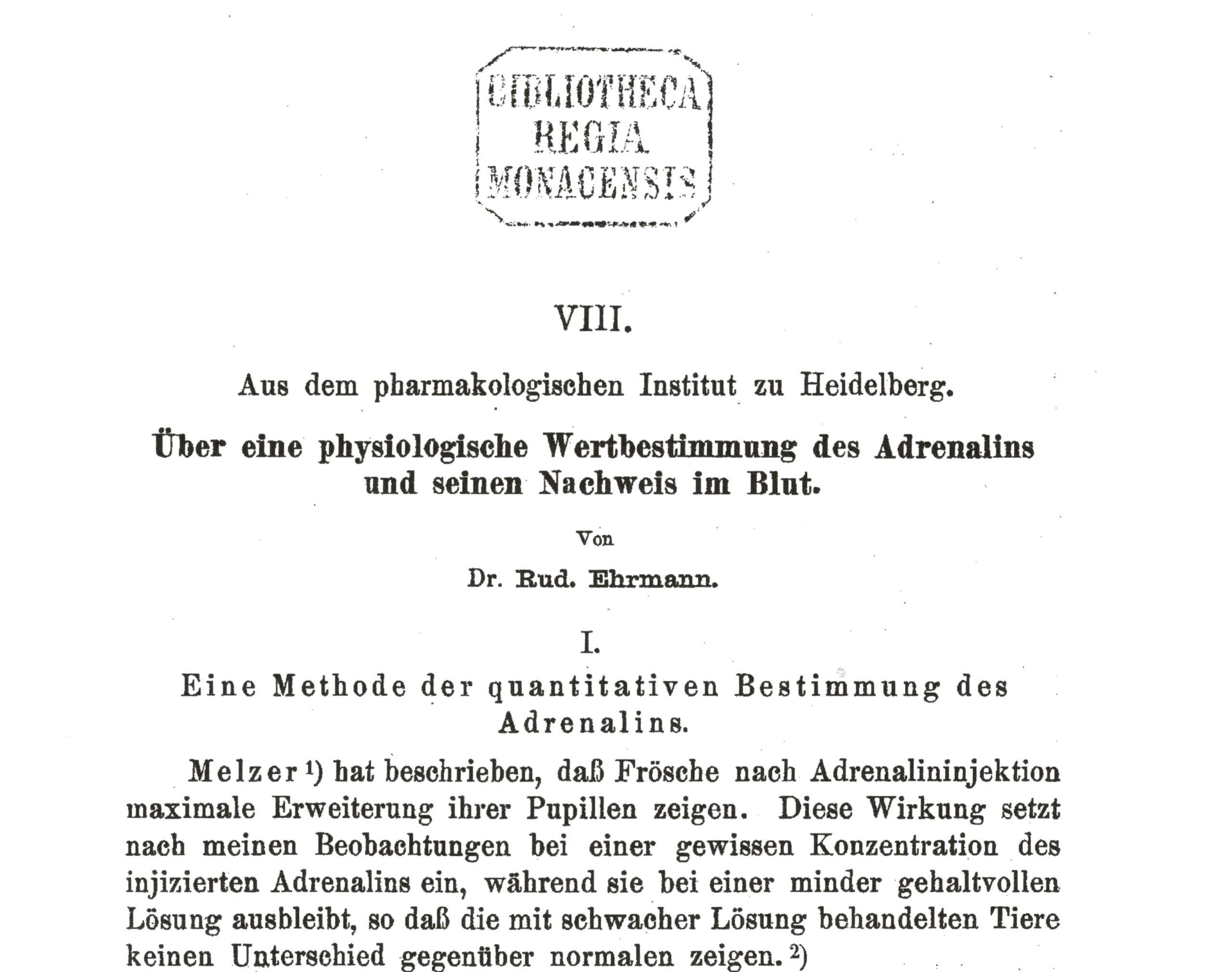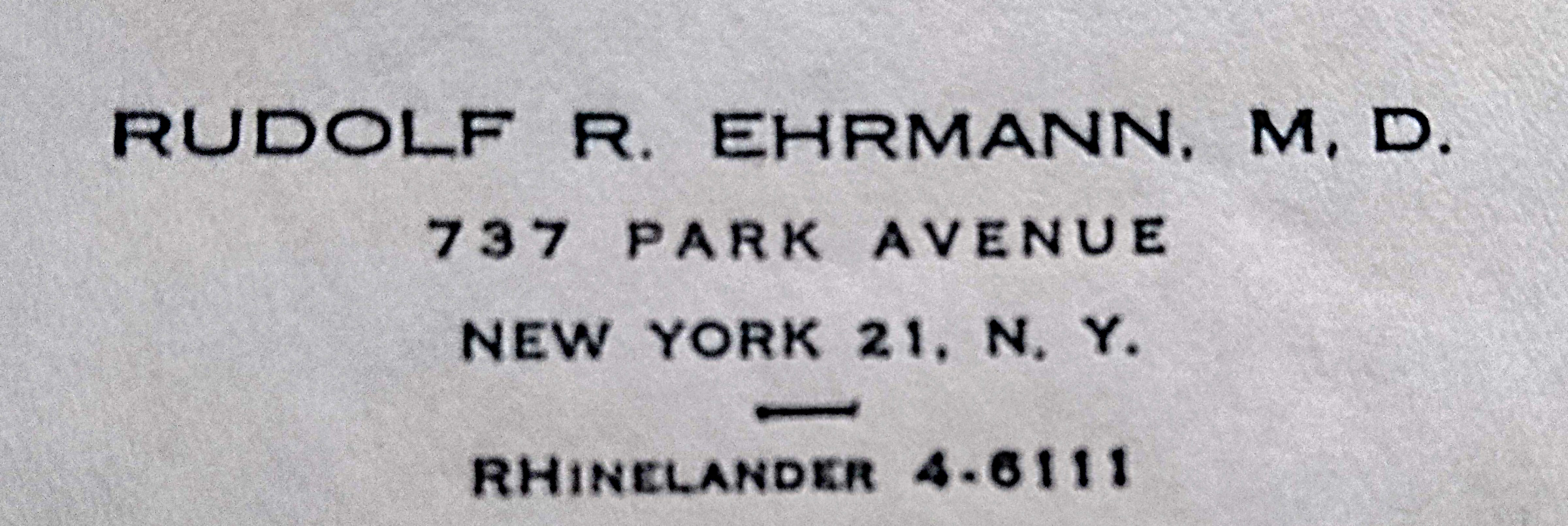Prof. Dr. med. Rudolf Richard Ehrmann
- Altenstadt in the Wetterau district of Hesse, 04.02.1879
- Berkeley, Alameda County, California, USA, 21.12.1963
- Member since 1926
- Escaped to the USA in 1939
- Berlin
- Specialist in internal medicine
“Rudolf Ehrmann, the author of the paper, was born in Altenstadt, Grand Duchy of Hesse, on 4 February 1879. He attended the “Philantropia” secondary school in Frankfurt am Main from Easter 1889 to Easter 1895 and the municipal (later Goethe) Gymnasium from Easter 1896 until his graduation on Michaelmas 1898. He studied medicine and natural sciences in Heidelberg, Munich, and Berlin from October 1896, where he passed the preliminary medical examination in July 1900. He went on to study in Munich, Kiel, and Strasbourg, where he passed the state examination on 29 June 1903″, Rudolf Ehrmann states in his dissertation. His parents were the merchant Salomon Ehrmann and his wife Marianne, née Plaut.
Education and Places of Work
Rudolf Ehrmann received his doctorate from the University of Strasbourg in 1903 with the thesis “Über die Peroxyprotsäuren”. After completing his studies, he worked temporarily at the Institute for Pharmacology at the University of Heidelberg under Rudolf Gottlieb. Here he worked on the physiology and experimental pathology of adrenaline secretion including the determination methodology for adrenaline in the blood in 1905/06. He undertook his training in internal medicine at the university hospital in Greifswald and primarily at the III Medical Clinic of the Charité under Alfred Goldscheider. Ehrmann habilitated at the Friedrich-Wilhelms University in Berlin in 1912 and was appointed private lecturer. He was appointed professor (extraordinarius) of internal medicine in 1915.
Rudolf Ehrmann was appointed Medical Director of the I. Internal Department at the Municipal Hospital Berlin-Neukölln in 1917.
Both scientifically and clinically, he dealt with the entire spectrum of gastric, intestinal, liver and pancreatic diseases as well as metabolic issues such as diabetes mellitus. He was especially devoted to the examination of gastric function and introduced Ehrmann’s alcohol test drink for the analysis of gastric secretion. His co-workers at the Neukölln clinic, Leon Dinkin, Heinz Taterka, and Walter Wolff, also published on this subject in the 1920s. Ehrmann was a broadly trained internist with a focus on gastroenterology.
In addition to his clinical work, he ran a respected private practice in Berlin, and counted Albert Einstein among his patients.
1933
Ehrmann had to terminate his work at the Neukölln hospital as early as April 1933. He was dismissed from the municipal health service in Berlin. His teaching licence at the Berlin University was revoked in 1935 (“Law for the Restoration of the Professional Civil Service”, § 4, political unreliability, of 7 April 1933).
Escape to England and the USA
Ehrmann, his wife and their 17-year-old son fled to London in 1939. The family left Southampton for the USA aboard the S.S. Arandora Star on 1 September 1939. They reached New York on 12 September 1939. Ehrmann received US citizenship in 1945.
He was a lecturer at Bellevue Medical Center New York and a consultant in gastroenterology from 1939 to 1940. He was able to work as a research assistant at Beth Israel Hospital, City of New York (now Mount Sinai Beth Israel Hospital) from 1940 to 1942. After having passed language examinations and the American medical exam, Ehrmann received a licence to practise medicine in private practice in New York City in 1942. There he once again was the family doctor of Albert Einstein and Fritz Kreisler, among others.
In the USA, he was a member of the American Medical Association and the American College of Gastroenterology.
Rudolf Richard Ehrmann died at the former Herrick Memorial Hospital in Berkeley, California on 21 December 1963 at the age of 84.



